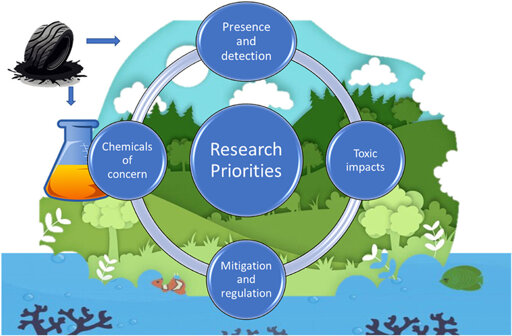A new study led by an international team of scientists highlights tire particles (TPs) as the leading contributor to microplastics and calls for urgent, targeted research to address their unique environmental and health risks.
Accounting for nearly one-third of all microplastics,




Rubber tire dust is also toxic to ecosystems, sometimes more than the plastic dust version. As the articles suggest, additives are also a problem, but additives matter to the integrity and qualities of the tires. Best to get rid of cars entirely.
Cars won’t be gotten rid of entirely. But we can reduce their usage. Rideshare systems (non-evil ones, not just Uber/Lyft; a membership system has been tried in Europe and works well) could help reduce the need for cars.
No
Please provide reasoning
Cars and car infrastructure are very expensive. I see that as a growing problem, with resources (budgets) needing to be allocated to more important things.
If you keep “a few” cars, the policy transforms cars into highly desirable status signals due to being luxury products that have some large access privilege. This alone is a huge danger because people in this civilization are raised to be obsessed with chasing status and giving a small minority the huge advantage of cars and car system would probably lead to some type of mafia, political corruption, all kinds of bad shit. And it would maintain DESIRE for cars, and desire is key to creating demand.
The goal should be to eradicate the technology of cars entirely. That’s going to allow for more efficient use of other systems, more efficient use of resources, less pollution, way less class conflict.
I’m not saying that it will eliminate class conflict, because we know that there’s a history of “classes” in public transportation, even in buses. That’s segregation by class (in the US that class system was also mirrored in “race”). That’s a problem we should figure out separately.
Essentially, any time you support the production and use of a luxury, you’re destabilizing society and creating dangerous racing conditions (“race to the bottom”, “rat race”, “arms race”) which means that it’s unsustainable socially and politically.
I am actually from Eastern Europe and in my country, during the “Socialist” regime, there still were cars and they were rare. It drove the people nuts, it was a huge privilege to drive on, to buy one, to fuel one. After 1989 getting cars became a free for all, if you had money, so now the place is almost literally paved with cars in the big cities and most of them are second-hand, with a large number of them being junkers that cause horrible pollution (yes, we are in the EU). I’ve seen it happen, this tragedy. Which is why I say that there can be no stable state of “just a few cars”.
It doesn’t even work industrially, these car factories and car parts factories rely on economies of scale and large production. The lower the production, the more expensive and manual it has to get. Remember, cars started out as a rich people’s dangerous toys.
Similar dynamics apply to car infrastructure. That shit’s expensive. Do you think you’re going to have highways across the land for a fraction of the current car users?